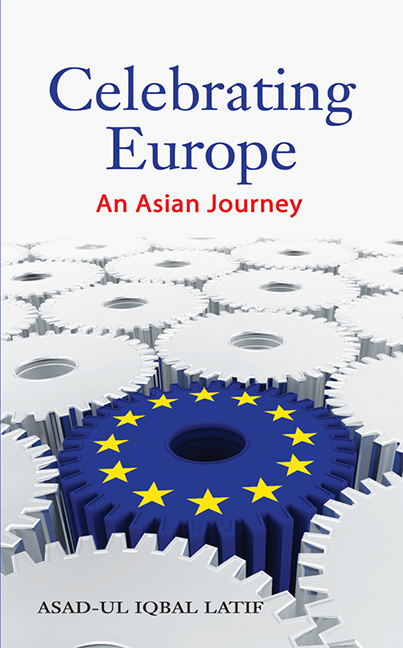Book contents
- Frontmatter
- Dedication
- Contents
- Foreword
- Acknowledgements
- Introduction: Europe
- 1 Europe Abroad
- 2 Gentiles
- 3 The Berlin Wall
- 4 Soviets of the Mind
- 5 The Secular Soul
- 6 The Leopard's Italy
- 7 England
- 8 Champagne France
- 9 Two Bengali Greeks
- 10 The Polish Hospital
- 11 Postmodern Europe
- Bibliography
- Index
- About the Author
- Frontmatter
- Dedication
- Contents
- Foreword
- Acknowledgements
- Introduction: Europe
- 1 Europe Abroad
- 2 Gentiles
- 3 The Berlin Wall
- 4 Soviets of the Mind
- 5 The Secular Soul
- 6 The Leopard's Italy
- 7 England
- 8 Champagne France
- 9 Two Bengali Greeks
- 10 The Polish Hospital
- 11 Postmodern Europe
- Bibliography
- Index
- About the Author
Summary
To the question “What are you writing?” my answer was: “A writer, children, is someone who writes against the passage of time.”
— Günter GrassThe Yad Vashem Holocaust History Museum in Jerusalem is purgatory. One goes there to pay for other people's sins, but comes out purified all the same. One emerges a Jew. The photographic exhibits soon overwhelm the senses; one grows immune to the tragic residues of suffering because suffering is depicted on such an epic scale and, therefore, diffused. But it was a single photograph that rescued my mind from numbness. It showed a group of Jews, spanning several generations, who had been photographed just before they were to be transported to a concentration camp. Their faces betrayed none of the emotions that could be expected of humans in such a situation. They did not exhibit even the calmness of resignation. They looked at the camera with a calmness approaching calmness itself. It was as if the occasion could not have been more normal. True, the condemned all wore a plaintive look, but it was the plaintiveness of tourists posing for a group photograph at the end of a holiday cut short by an inexplicable act of nature. The holiday had brought them to a wonderful place that they liked very much and were loathe to leave, but the holiday would have come to an end in any case. So they were going home. They merely wished they could have stayed a little longer.
I could not take it any more and ran out of the museum. It was almost as if I were running towards Europe. “Men are accomplices to that which leaves them indifferent,” George Steiner writes. “It is this fact which must, I think, make the Jew wary inside Western culture, which must lead him to re-examine ideals and historical traditions that, certainly in Europe, had enlisted the best of his hopes and genius. The house of civilization proved no shelter.” This is what Europe had done to the Jews.
- Type
- Chapter
- Information
- Celebrating EuropeAn Asian Journey, pp. 23 - 35Publisher: ISEAS–Yusof Ishak InstitutePrint publication year: 2012

